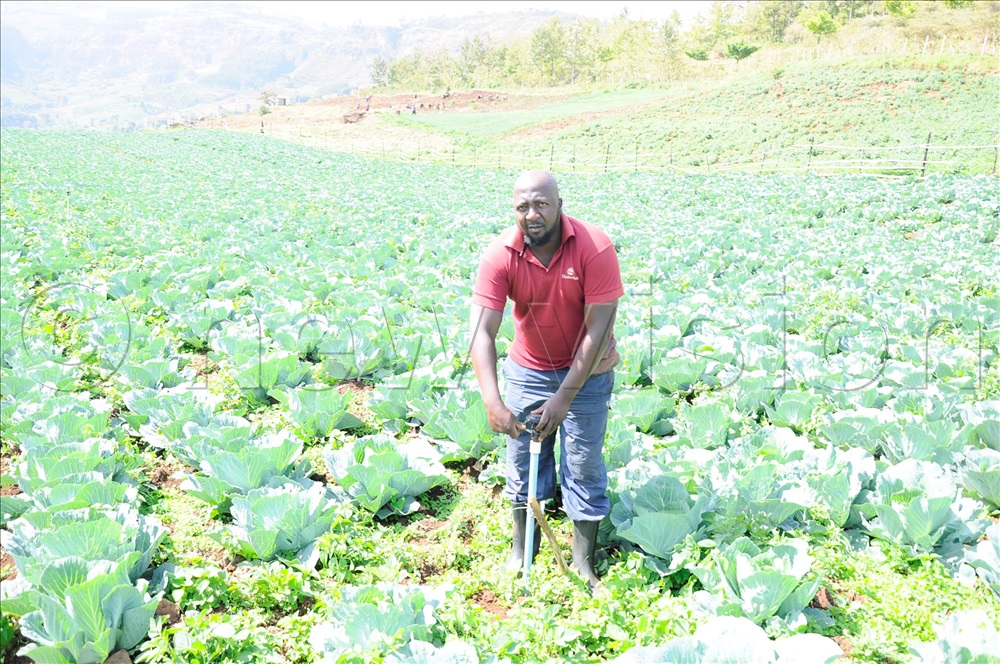By Umar Nsubuga
Joseph Munerya and Isaac Malinga, both recognised as top farmers in Kapchorwa district, are champions of modern irrigation techniques that help maximise crop yields.
One method they swear by is sprinkler irrigation, which plays a crucial role in delivering water directly to the leaves, keeping crops hydrated and healthy.
Munerya explains that sprinklers are designed to mimic natural rainfall.
“Sprinklers distribute water evenly across the field, just like rain,” he says.
“They spray water in fine droplets, which fall onto the leaves, allowing the plants to absorb moisture through their foliage as well as their roots.”
He highlights that sprinklers are particularly beneficial for crops like vegetables, which require consistent moisture on their leaves for optimal growth.
Malinga, known for his innovative farming techniques, adds that sprinklers improve water efficiency.

“The beauty of sprinklers is that they target the entire plant both the leaves and the soil around the roots,” he notes.
“This ensures the plants get the right amount of water without over-saturating the soil.”
By using sprinklers, farmers can control water usage, preventing waste while keeping the plants well-nourished.
Sprinkler systems play a vital role in modern farming, ensuring crops receive adequate and evenly distributed water, much like natural rainfall. He adds that they optimise water usage and enhance plant growth by hydrating both the leaves and roots.
Malinga emphasises that sprinklers release water in fine droplets, hydrating the entire plant from the leaves to the soil beneath.
For crops that thrive on consistent moisture, such as vegetables, sprinklers ensure even distribution, reducing the risks of under or over-watering.
According to Munerya, sprinklers provide dual coverage by ensuring that water reaches both the foliage and the surrounding soil. This balance helps to cool the leaves, promote photosynthesis, and maintain soil moisture for root absorption.
“By controlling the amount of water distributed, sprinklers prevent over-saturation and reduce waste a critical advantage in areas where water resources are scarce or rainfall is unpredictable'” he says.
Sprinklers can be used for a variety of crops and are adjustable depending on the plant’s water needs. They are ideal for large fields or smaller, concentrated areas, making them versatile for different farm sizes and crop types.





